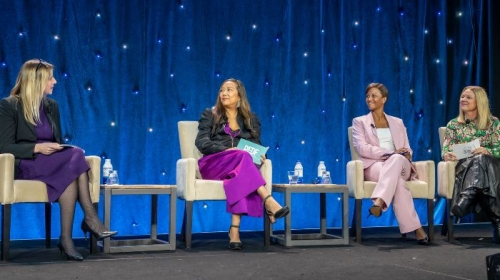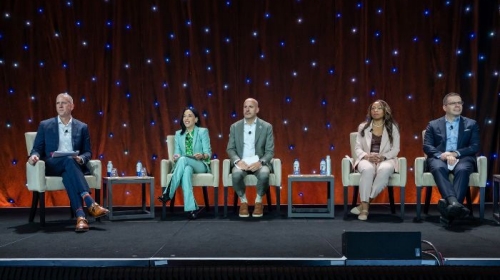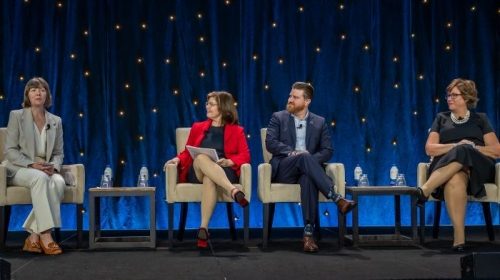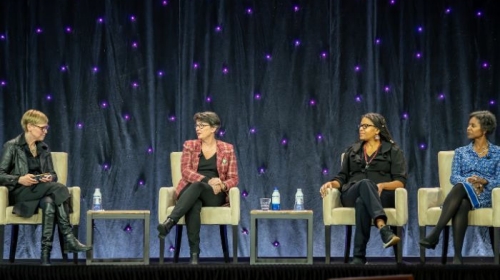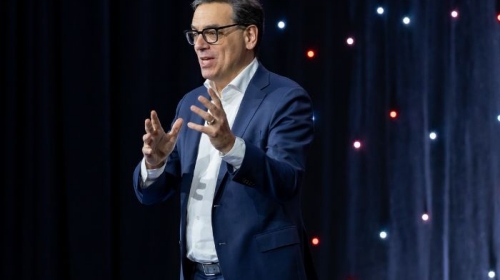In today's complex business environment, many corporate citizenship leaders are working strategically with their employee resource groups (ERGs). Also known as business network groups or affinity groups, these employee-led communities can foster a sense of inclusion and belonging, while sponsoring events and learning opportunities for people all throughout an organization.
Corporate coalitions result in big impact for social issues

Interested in this topic? Watch our previously recorded webinar, Coalition Building for Corporate Citizenship.
“Collabotition”—the practice of collaboration with competitors to achieve mutually held objectives—provides an opportunity for companies to work efficiently through issues that are material to the whole industry. When individuals work together, they form teams, and when companies work together, they form alliances in the form of coalitions.
While research has underscored the benefits of companies partnering with nonprofit organizations, it is also important to keep in mind that the phenomenon of corporations working across business lines to achieve a greater good can be tremendously influential. Examples of companies banding together include the We Are Still In pledge to uphold the Paris Agreement on climate change, and companies putting their sponsorship dollars and marketing expertise toward non-partisan get out the vote coalitions and commitments.
As is consistent with the findings of BCCCC’s Profile of the Professionals 2020 research, communication is a key component of any collaboration. Communicating efforts effectively is a critical tactic in helping stakeholders understand the long-term value of any corporate citizenship effort, and is essential to gaining buy-in, managing expectations, engaging employees, and even stabilizing market value. It follows, then, that in order for cross-sector or precompetitive coalitions to be successful, the organizing body needs to initiate a concerted, long-standing effort to create touchpoints and goals against which members can track their collective progress.
For an example, look to the Health Transformation Alliance: In February 2016, a group of large self-insured companies—including Coca Cola, FedEx, Pitney Bowes, The Hartford, Trane Technologies, Verizon, and Walgreens—were brought together by the nonprofit American Health Policy Institute to form the Health Transformation Alliance (HTA), designed to reduce health care costs. To date, there are 50-plus major corporations that have joined HTA by making the promise to “fix [America’s] broken health care system.”
HTA identified two pharmacies and two medical networks (including Cigna) to make the care provided to all of the companies’ employees more streamlined, cost-effective, and focused on improving health outcomes. With a collective presence, HTA companies are working together in the name of transparency, innovation, and value.
Since its formation, HTA has worked with IBM Watson Health to gather analytics to inform how care, outcomes, and patient experiences can be consistently improved upon. Given that HTA’s collective employee count is more than 7 million, the analytics made available to IBM Watson Health are robust, capable of changing health care in informed and potentially monumental ways.
It has been estimated that HTA-affiliated companies have yielded collective savings of $600 million over three years—attributable to both the forward-thinking, proactive methodologies the alliance is committed to offering employees and the weighty negotiating power alliance members have when working together. The business case for consolidating funding and expertise to further goals of promoting and sustaining a healthy workforce is clear: Health care that is focused on improving health outcomes both lowers costs to employers and improves the well-being of employees.
Watch our previously recorded webinar, Coalition Building for Corporate Citizenship to learn from corporate citizenship professionals who have built successful coalitions, how they get started and how they leverage these powerful partnerships.
Related Content
Re-watch this insightful panel discussion with The Allstate Foundation and its nonprofit partners as they reveal their journey to build trusting, authentic donor-grantee collaborations that drive greater impact.
In this fireside chat with Travelers EVP and Chief Marketing, Communications and Customer Experience Officer, Lisa Caputo, you’ll hear how achieving the Travelers Promise means taking care of customers, community, and each other.
Support for military families is vital to sustaining America’s all-volunteer force, a strong national defense, and healthy business environment. But many companies don’t fully consider how they can be a powerful ally to military families.
In an era of critical nursing shortages and untapped veteran talent, Independence Blue Cross Foundation has engineered an innovative solution that serves both community needs and business imperatives.
Sanofi's session looked at questions like: How can companies bring their purpose and core strengths toward ensuring a resilient world? How should we inform and define our points of entry? With whom should we be joining forces to foster the healthy, thriving communities we all need?
In this powerful 60-minute storytelling session, five storytellers shared deeply personal stories of how working across traditional boundaries transformed their understanding of leadership, impact, and human potential.
Re-watch this inspiring keynote, sponsored by BMO, featuring Daniel Pink, #1 New York Times Bestselling Author of The Power of Regret, When, To Sell is Human, Drive, and A Whole New Mind.


